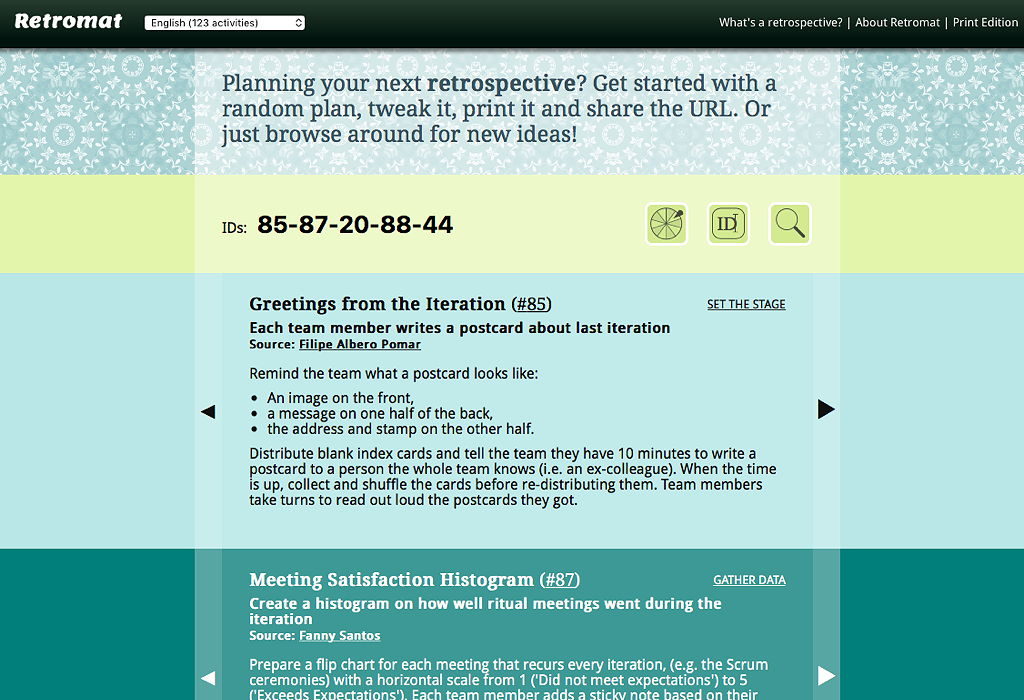TL; DR: Curate Retrospectives with Retromat
Learn how to curate retrospectives with Retromat without relying on the random retrospective function, including three examples.


How to Curate Retrospectives for Fun and Profit With Retromat
Admittedly, up to now my retrospective style has been a sort of opportunistic, depending on the sprint in question.
However, facing three retrospectives in the next week with recently created Scrum teams, I decided to change this approach. I spent two days on going through all (English) modules of the Retromat, and decided to curate retrospectives in advance, one for each team. In the first step, I picked my favorite exercises from each of the five stages:
- Set the stage
- Gather data
- Generate insights
- Decide what to do
- Close the retrospective,
and then decided to ignore the rest. (Although, the exercises are supposed to be interchangeable, I believe that some of the 7,084,005 combinations actually do not work that well together. Some combinations just break a cohesive story, making the retrospective experience a bit random.)
Then I created a sort of storyline for each of the three retrospectives, by starting with me first favorite of the “set the stage” category, connecting it to a suitable favorite from the “gather data” stage. Once the two were identified, I started looking for the one from the “generate insights” stage, and so on until all five stages were set, telling a cohesive story.
Theme-wise, I picked the UEFA Euro 2016 cup for decision making, the upcoming Berlin regional election to generate insight (here the election manifesto for change), as well as the “The Worst We Could Do” exercise—I still cannot quite believe that #Brexit is now a reality.
If you like to try my curated retrospectives yourself, here we go:
What are your favorite Retromat retrospectives? Please share with me in the comments. Maybe, we manage to build a pool of tried and tested retrospectives that way.
Thanks to Corinna Baldauf for creating and maintaining this amazing repository of agile practices.


Related Posts
Retrospective Exercises Repository
20 Questions a New Scrum Master Should Ask Her Team to Get up to Speed
21 Sprint Retrospective Anti-Patterns Impeding Scrum Teams
📅 Scrum Training Classes, Workshops, and Events
You can secure your seat for Scrum training classes, workshops, and meetups directly by following the corresponding link in the table below:
See all upcoming classes here.
You can book your seat for the training directly by following the corresponding links to the ticket shop. If the procurement process of your organization requires a different purchasing process, please contact Berlin Product People GmbH directly.